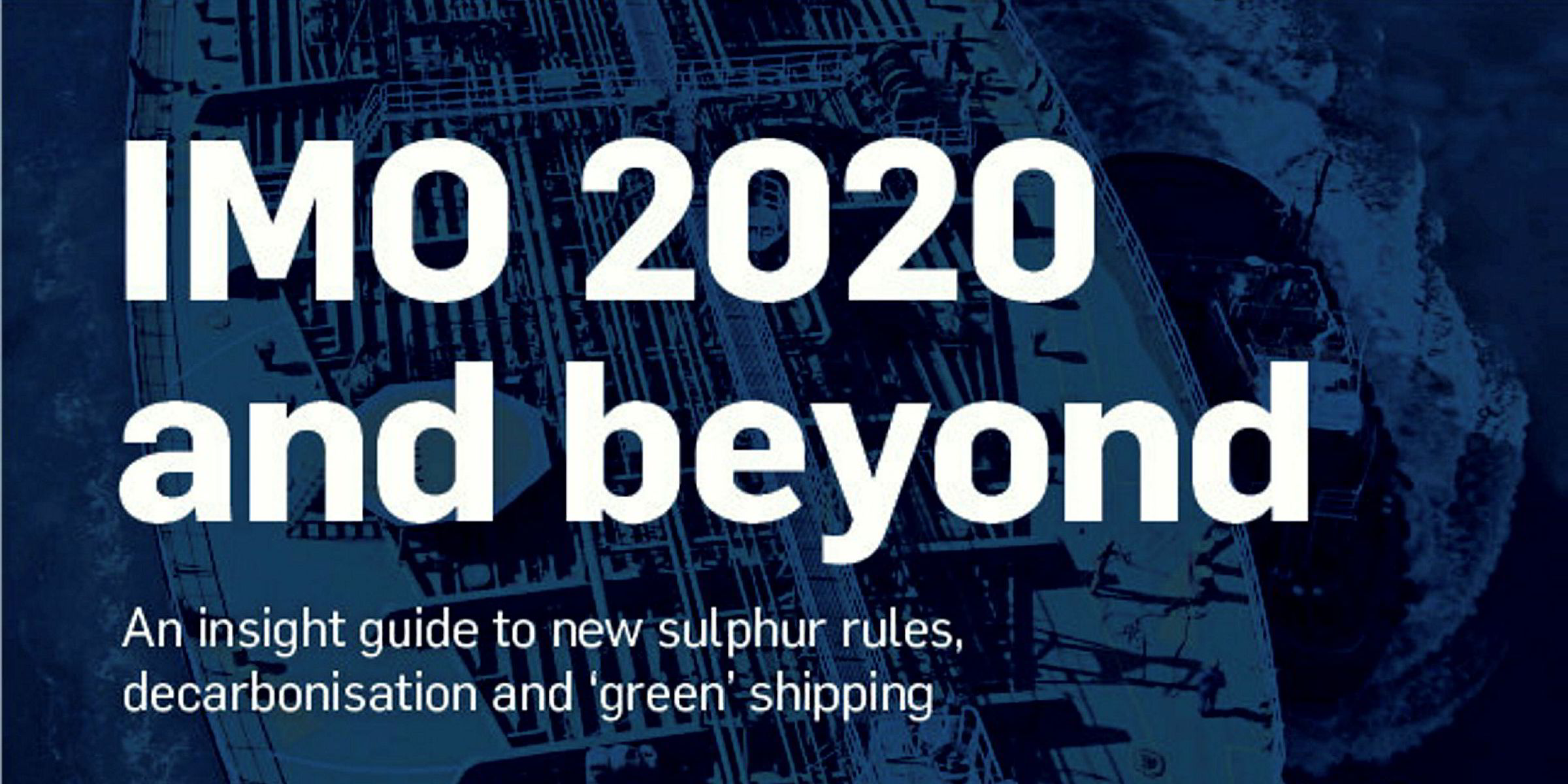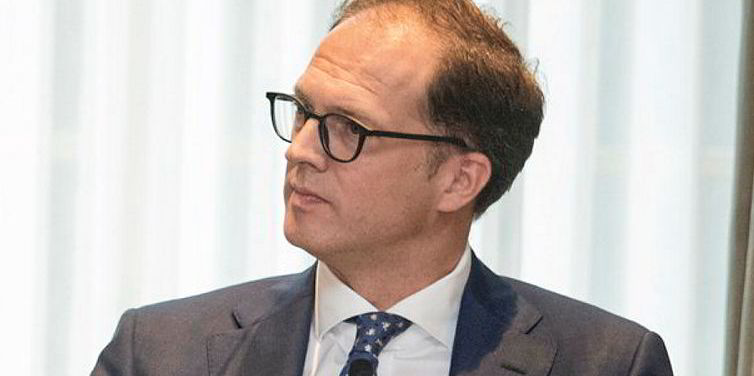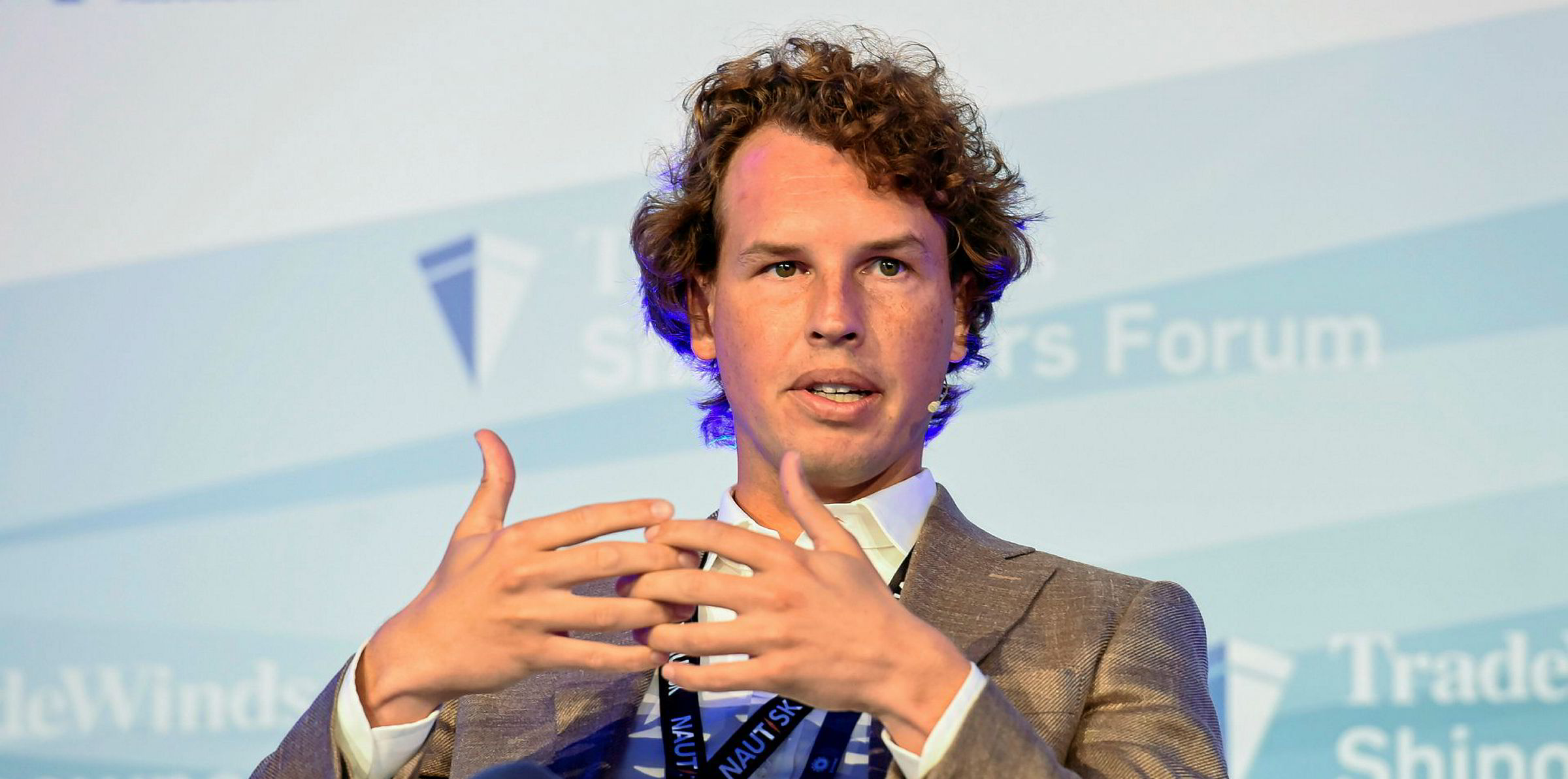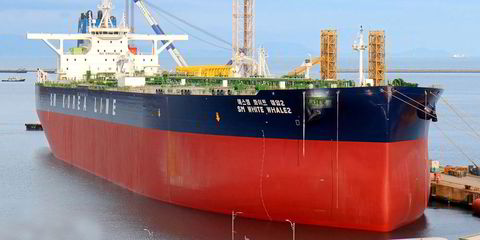Euronav chief executive Hugo De Stoop has urged IMO member states to focus on decarbonisation measures that are easy to implement when they meet this month.
The UN body will hold the sixth meeting of the Intersessional Working Group on Reduction of GHG Emissions from Ships between 11 and 15 November.
Participants are expected to recommend measures for approval by the IMO’s Marine Environment Protection Committee in 2020 so they can come into force by 2023.
“I think they should focus on the low-hanging fruit,” De Stoop told TradeWinds. “The list is long.”
For one, he noted that the IMO can play a significant role in enhancing ship-and-shore coordination — the improvement of which can cut fuel consumption and greenhouse gas (GHG) emissions.
Several member states, including Greece, have proposed reductions in vessels’ main engine power to curb emissions. According to De Stoop, this would have similar effects to mandatory slow steaming but would be more efficient.

Check out TradeWinds Knowledge http://bit.ly/35g4KZ1, our new research project on IMO 2020 and decarbonisation
Euronav, which owns the world’s second-largest crude tanker fleet by capacity, has been active in promoting shipping decarbonisation.
De Stoop was one of the industry executives who drafted the Poseidon Principles, a finance framework for banks that are committed to adjusting their portfolios in line with the IMO’s 2050 target to halve GHGs from international shipping from the 2008 level.
Ambitious programme
Euronav is also one of the 70 companies that have formed the Getting to Zero Coalition, which aims to develop commercially viable zero-emission ships by 2030.
“We have a very ambitious programme [in GHG reduction]. We are currently in dialogues with a number of our clients... to demonstrate how we reduce our impact on the environment,” De Stoop said.
TradeWinds earlier reported that Shell, Total and ExxonMobil are negotiating with shipowners on newbuilding projects for VLCCs that can run on LNG, which are believed to cost $15m more than conventional tankers.
Recognising LNG’s role as a transitional fuel for decarbonisation, De Stoop suggested Euronav could order LNG-fuelled ships on the back of charter commitments.
“For us, it’s important that when we order the ship, at the same time we have a contract,” he said.
“The [bunkering] infrastructure needs to be in place. We are pretty sure if [energy] majors sign a contract with us, they will make sure the LNG terminals and bunker barges are available.”
Shell has chartered some LNG-fuelled tonnage from Sovcomflot (SCF Group) for up to 10 years while agreeing to supply LNG bunkers. This could be a model for similar projects, according to De Stoop.
“The reason why a lot of oil majors are investing in gas production is because they believe... more people are going to use gas than currently,” he said. “Among those people sits shipping.
“If this is to happen, then they are going to provide the market with the tools like bunkering in LNG. For them, it’s a win-win.”
Based on DNV GL’s forecast, LNG will become the most popular maritime fuel by 2050, regardless of the IMO’s decarbonisation efforts, with competitive pricing amid rising production globally.
There have been doubts about whether tanker firms — whose main business is transporting oil — can secure sufficient financing to go green, though.
In early October, Teekay Shuttle Tankers became the first Western shipowner to raise funds via selling green bonds. It raised $125m compared with the upper limit of $200m, having reportedly failed to gain confidence from some investors that baulked at supporting a carrier of crude, even though the money is being used to fund four 130,000-dwt LNG-powered shuttle newbuildings.
A matter of pride
“They were the first one to go to the market. Being the first one can be very attractive from the publicity point of view. They should be very proud,” De Stoop said.
“But at the same time... you need to educate the market about what you are doing and why you are going green.”
He said cutting financing for the fossil fuel industry is probably not the best way to get to a greener economy. “The best way is to support the people who are doing the extra efforts.”







